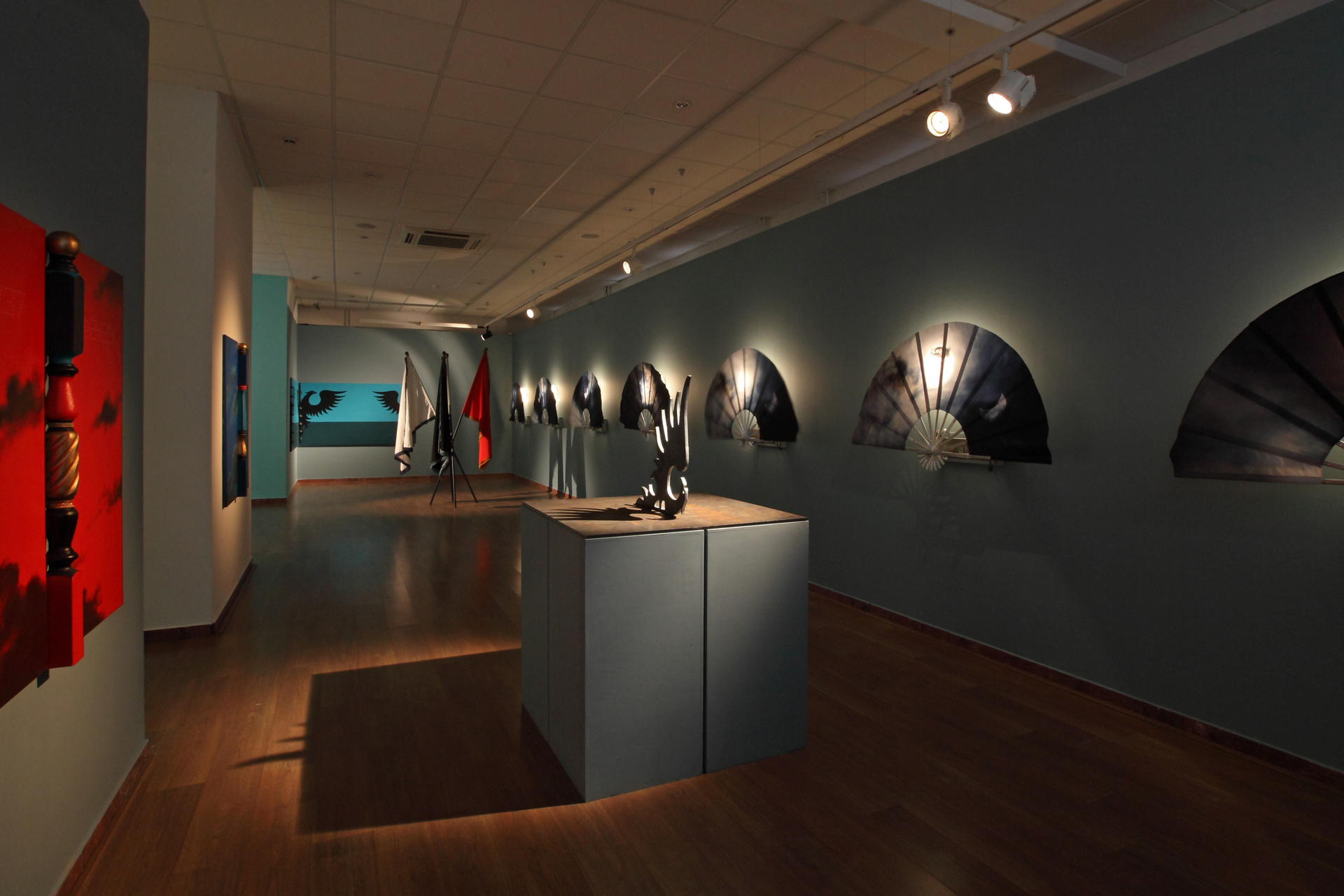
Stella Art Foundation presents an exhibition by Andrei Filippov, held as part of the Triptych project, which the Cupidon artistic co-op is displaying at the Foundation (the first part of the project was displayed in autumn-winter 2009).
Each part of the Triptych includes a group exhibition and a solo exhibition by one member of the co-op. On this occasion it is the turn of Andrei Filippov. For his exhibition he has created a sum of varied works, in which the central place is taken by electro-dynamic objects — closing and opening fans with a representation of the sky. Behind each fan there is a luminous disc, on which the hand of an angel has been painted holding a scroll: the disc is seen at the moment when the fan begins to close. The whole installation is entitled Rolling Blackout.
The technical meaning of “rolling blackout” is a complete or partial shutdown of power supply for technical reasons. But clearly for the artist the shutdown is associated primarily with the End of the World in its Judaeo-Christian version or, more specifically, with one of the events of this global finale, when “the heaven departed as a scroll when it is rolled together” (Book of Revelation, 6:14) or when “the heavens shall be rolled together as a scroll” (Book of Isaiah, 34:4). The biblical comparison of the heavens with a scroll is transformed by the artist into a coincidence of scroll and heavens or, rather, he swaps the scroll for a fan, which he presents as a book-map of the heavens. Picture, book, scroll and fan are for Philippov invariants of a single thought-form, whose historical origins are to be sought, not in the European tradition, but in the Eastern, and more specifically the Chinese tradition, where scroll, fan and screen have long served both for the inscription of texts (essentially, as different book formats) and as a support for painting, and this is more than natural, since writing and representation in Chinese culture grew from a common root and were therefore easily united. If we then remember that Chinese culture has always been important for the Moscow conceptualists and that they felt a certain kinship with the thinkers-literati-artists of ancient China, the logic of creation of Rolling Blackout becomes even clearer.
Andrei Filippov belongs to the circle of authors of the Moscow Conceptual School, whose work paradoxically combines an interest in representative and textual symbols with the solution of formal problems. The artist was born in 1959 in Petropavlovsk-Kamchatka. He studied at the studio school of the Moscow Arts Theatre in 1976-1981 and started painting in 1982. In 1982-1984 he regularly exhibited and took part in actions at the APT ART gallery in Moscow. He joined the Avant-gardists Club (KlAva) in 1987. Since 2009 he has worked with the artists Yuri Albert and Victor Skersis in the Cupidon group. Andrei Filippov lives and works in Moscow.